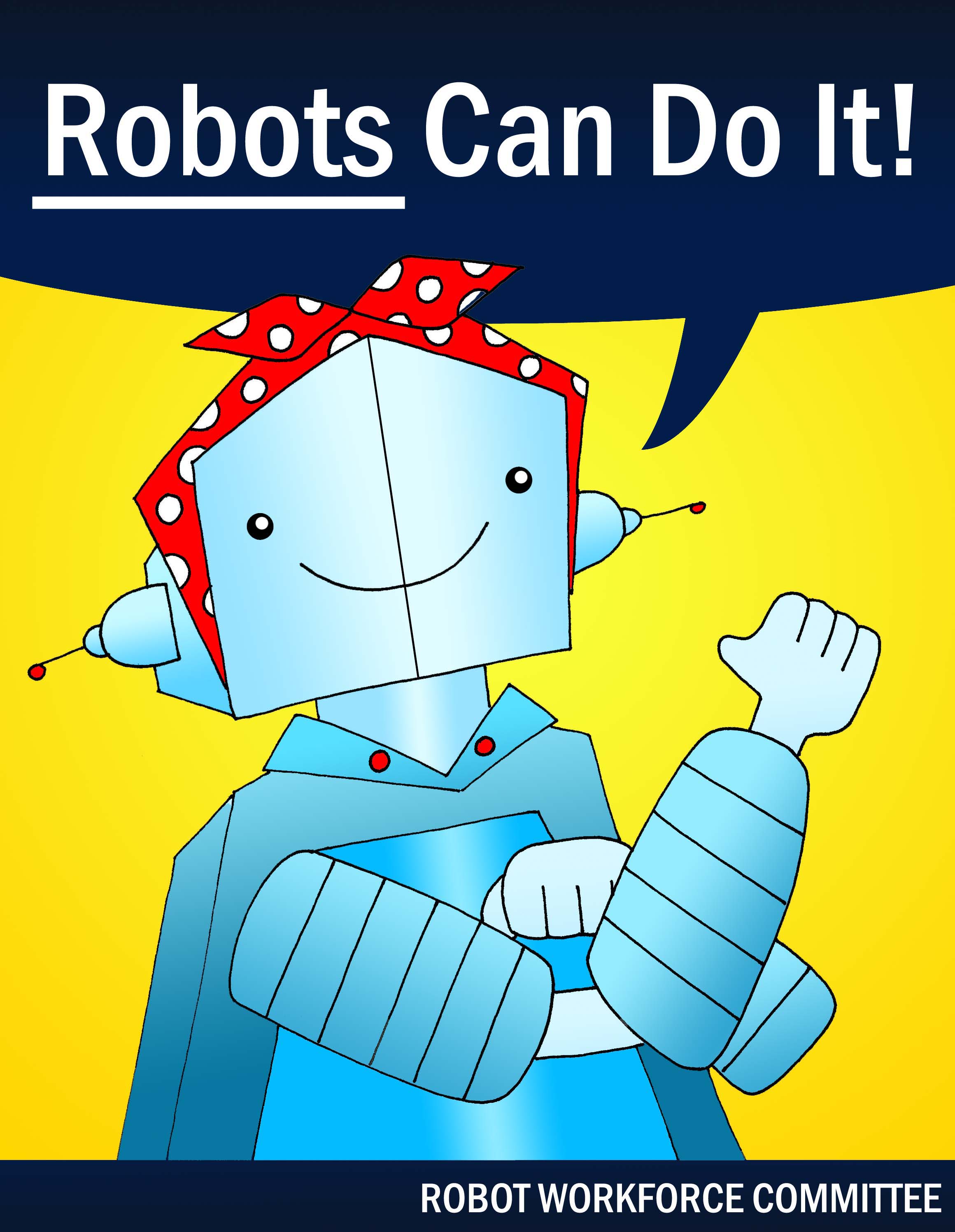Robots test abilities of the human workforce, as people need to pursue higher levels of education to ensure steady employment

By Rohan Viswanathan
July 24, 2011 11:54 p.m.
Throughout my life I believed earning an education was essential in order to compete against other people for jobs. Turns out, people may not be my biggest worry.
Our nation’s high unemployment rate is not only caused by economic fluctuations, but by the introduction of a new workforce: a robotic one. What we have failed to understand is that with new technological advancements come better job opportunities.
The rapid rise of robotics has come to demonstrate that we must now take our education further if we want to compete with this new workforce. Robots will not bring the apocalypse, as so many are fearful of. Instead, their introduction should be celebrated, because with robots comes better job opportunities and a motivation to pursue education.
Everywhere from supermarkets to gas stations, robots are becoming more and more prevalent. Menial jobs once considered for the uneducated are now being handed over to machines. The workers in the manufacturing industry have taken the biggest hit, with machines able to complete tasks faster and more efficiently than humans can.
Robots have even managed to infiltrate the retail industry; more and more online stores and online shopping removes the need for a physical store and the need for employees.
A study done by the UCLA Anderson School of Management has tackled why companies seem to be improving when unemployment is still staggeringly high. Edward Leamer, director of the UCLA Anderson Forecast said that businesses and companies are not hiring, but that does not mean they are not prospering. He theorizes these companies are still able to expand because they can outsource jobs and have robots perform tasks humans once did.
The Gross Domestic Product rate is misleading because though it shows that businesses are expanding, it gives the false impression that because the businesses are succeeding, so are the employees. In reality, human employees are losing their jobs to machines, but companies are able to use those machines to create a net profit.
However, our reaction to the presence of robots is wrong. Though they may be taking away jobs in some industries from us, they pave the way for new industries that call for more intelligent and educated minds.
Robots, however intricate they may be, do not create themselves. For every robot that works in a factory or at a supermarket, there is a team of people who assembled and programmed it. The more robots take over an industry, the more people are needed to create new ones. As long as robots are being created, there will always be a need for the technology industry ““ a need that can only be satisfied by humans.
Yet, robots provide humans with a distinct motivation to create new industries and new places of employment: fear. We live in an age when robots have come to dominate jobs our grandparents and parents were accustomed to working. We can no longer rely on that cashier job at our supermarket, or the sales associate job at the mall. In order to secure a job, we must use fear as motivation for better education.
People need a higher level of education in order to access better jobs and top tier industries. A high school diploma could have offered so much 60 years ago, but today it offers very little. Those who do plan on working straight after high school must realize the majority of the jobs and industries they are qualified for have already been taken over by machines. The same goes for those who simply attain a bachelor’s degree ““ they must take it to the next level and earn a master’s or a Ph.D. in order to enter an industry that has not yet been contaminated by machines. By attaining higher education, people are certain to enter industries which robots can never take over.
Technological advances elicit a necessary change in the way we are going to have to face employment. Humans have used their intelligence to create a more productive alternative for many jobs. However, instead of complaining about how machines have taken over jobs we are easily skilled for, we should use this as motivation towards our educational progression.
This is only an example of Darwin’s “survival of the fittest” theory. Those humans who are fit and can adapt will gain better education and ultimately end up with jobs that cannot ever be done by robots. However, those who are weak will end up unemployed and victims to their newest enemy: the machine.
Do you think robots pose a threat to the future job market? Email Viswanathan at [email protected]. Send general comments to [email protected].

